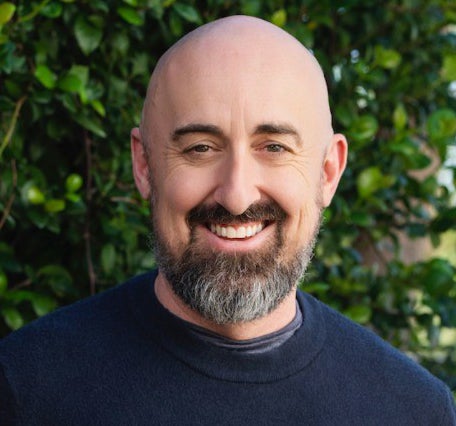Having worked for more than a few years, here are two things that we can say about the Internet advertising industry. First, if you work in the space, you will meet an incredible number of truly smart people. Second, if you work in the space, you will meet people who have an incredible ability for making money. Now, the two aren’t incompatible, but not every smart person makes money, and not everyone who makes money will blow you away with their intelligence. Focusing on the second group of people, those that make money, you’ll find two types. Those that know how to generate cash, and those that build businesses. Both make a lot of money, but when they succeed, the second group makes island and Gulfstream money. You might think this group contains the smartest people – think Sergey Brin, Max Levchin, Jeff Bezos – and it has its All-Stars, but it also has a seemingly disproportionate amount of real world geniuses, not the Val Klimer genius in the movie "Real Genius" whose mental horsepower blows you away, but the guys whose street smarts will. If you’ve heard the saying the rich get richer, it’s this group of people about whom they speak. We think we know why, and it actually has a lot to do with our article last week "Get Hired."
Talk to a guy that has built a business, and he will say something like, "You need to get the right people." Let’s use one of the Adify founders, Rick Thompson. Their company just sold for $300 million, and if there is a guy whose success you might want to emulate, he qualifies. Not only did he found Adify, but he also cashed out big with his dot com one ad network, Flycast. In 1996 he and now two-time mega lotto partner Lawrence "Larry" Braitman founded one of the first ad networks. That company earned a whopping 630k in 1997, which they turned into just north of $8 million in 1998. Unfortunately, they didn’t come close to breaking even, showing a net loss of almost nine million dollars that year. The growth and the chance that they might make money, not to mention overall trend to let the general public act as the venture firm allowed them to go public in 1999 and ultimately purchased for more than $700 million by the now defunct CMGI. Reading their SEC Filing is like traveling back in time, but also a lesson in: the more things change the more things stay the same. Take the company’s description for example. "The Flycast Network offers a comprehensive system for planning, buying, selling, managing, evaluating and administering Web advertising. To fulfill the needs of response-oriented advertisers, the Flycast Network aggregates advertising inventory from Web sites that meet minimum size and quality requirements. Many small and medium-size Web sites that are unable to support their own sales forces list all of their inventory with Flycast. Other sites that maintain either a direct or outsourced sales force, but that are unable to sell all of their inventory, list the unsold portion on the Flycast Network."
Fundamentally, not much has changed in the nine years since Flycast wrote those words in their S-1 filing. You could almost use that description word for word if you needed to describe their follow-up to it, Adify originally, Steamroll. Their PR firm, though, described the company to us like this last year, "Adify is powering a new class of vertical ad networks which aim to connect brand advertisers with quality audiences across the Internet’s long tail and also to make those communities easier and more attractive to buy on. The Web is a largely untapped medium for brand marketers and Adify’s global media and entrepreneur partners are building networks that connect brand advertisers with small publishers at scale to take advantage of that potential. The company was founded in 2005 by the same team behind Flycast, one of the early pioneers in online advertising in the ’90s, and is backed by $30 million from blue-chip venture firms as well as NBC Universal and Time Warner." Like they did with Flycast, the trio (including Thompson) read the pulse of the industry and market, and despite the expected claims of millions in development, five smart people could build their technology in less than two months. Given that Adify had a staff of perhaps 70 at the time of acquisition, like Flycast, I doubt the company had turned a profit at the time of its liquidity event, or if it had, I suspect they still received a multiple somewhere between insane and unbelievable. The real story though doesn’t have to do with their earnings or multiples or technology or strategy (all of which played roles). It comes down to how they really made money – people. They knew the right people. And, perhaps just as importantly, if you watch them, you realize that people who know the right people, act the same way that those of us that don’t know the right people do. In other words, in the game of relationships, they put their pants on one leg and then the other. Here’s why.
When you need a product or service, what do you do? You ask a friend or colleague you trust. How many times have you heard, "Oh, if you need that, you should talk to my guy/girl." The same holds true for the business world. Who do the serial entrepreneurs turn to when they start anew? Their guys/girls. Just look at the CEO of Adify. Before holding business development positions at Wine.com and comScore, do you know where he worked? Flycast. He wasn’t one of the two founders. His current partners at Adify were, and whether he brought on board the two Flycast founders or vice versa, it doesn’t matter. It’s the pattern of familiarity. As the saying goes, each could have had any, but they didn’t. They went with whom they knew, with whom produced for them in the past. And, even more important, while it helps to have founded another company, you don’t have to have founded it to recruit former founder levels. In this aspect, Adify follows a pattern that so many have before. So, if you aren’t working on your relationships, you aren’t working.



